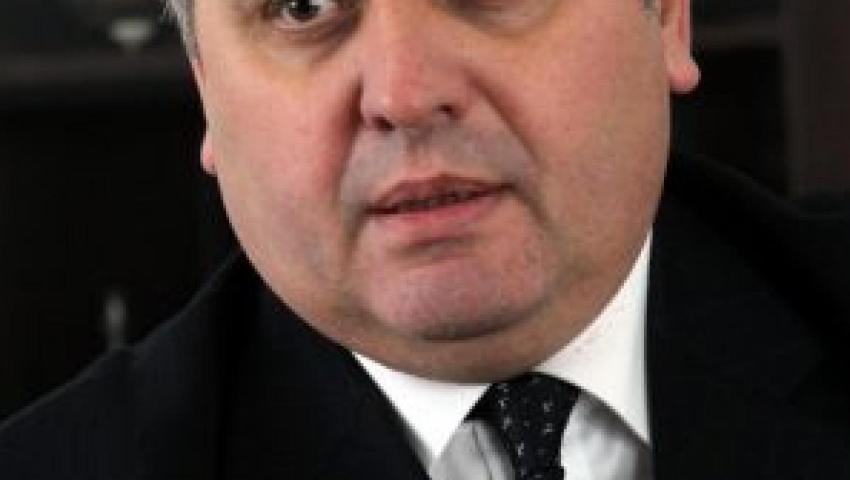Energy poverty in the shadow of political bigotry

Slavcho Neikov, expert on energy policy
According to NSI database, as of 2021, 2,829,000 (TWO MILLION EIGHT HUNDRED AND TWENTY NINE THOUSAND) Bulgarian citizens are at risk of energy poverty given their very low incomes.
In the European context, the topic has been raised for a long time, and European legislation introduced imperative obligations for steps at the state level in this regard as early as 2018, but for Bulgarian politicians this is clearly not of particular importance.
The Discussion "Let's reduce the bills - energy poverty and prices" held on December 1, organized on the initiative of Sergey Stanishev with the support of the Delegation of Bulgarian Socialists in the European Parliament, brought to the surface startling realities - both in terms of income levels and expenditure on energy, etc. Their comparisons with those of Central Europe give huge grounds for concern.
And the political reactions after the event were not long in coming. "Mr. Pekanov, when are you going to introduce the concept of 'energy poverty' to the National Assembly for approval?" Mrs. Kornelia Ninova asked with pathos in the National Assembly only a day later. Formally, the question is justified given the requirements and deadlines laid down in this direction in the Recovery and Sustainability Plan.
In fact, if something more structured has been done on the issue so far, with the intention of setting a longer-term regulatory framework, it is precisely from the caretaker government - and it has only been in power for four months. This also includes the activity he organized of specialized administrative structures, actually acting on the subject in this particular period, and through intensive provision of additional targeted funds for social assistance in the context of an extremely complicated and hitherto unknown energy situation and other challenges.
The results in the area of normative activity at the expert level regarding the definition and normative framework for energy poverty are far from good so far, and there was a difference of opinion on substantive issues - but this government has been working for a very short time, as for the greater part of there was no parliament these few months. And the actions taken by the executive power are against the background of waving hints by politicians that the caretaker government has "limited legitimacy", that it cannot "draw distant perspectives" and the like. However, both Mrs. Ninova and these same politicians waving hints belong to parties that were in power in the meantime by 2018 and beyond - and had not only all the opportunities, but also legally established obligations to work on the matter. And they did nothing real about it for four years! Nothing! But the appearance of an election on the horizon suddenly gave them wings - at least for fairy tales.
Otherwise, in terms of energy poverty, the executive power certainly owes a clear road map of what comes next and when - but realistically this can be done within the framework of a regular government. And in the Parliament, things have other dimensions - both before and since the beginning of the work of the 48th National Assembly, the deputies acutely concerned about the subject have not introduced a single targeted bill in this regard.
At the same time, the apparently more important changes in the electoral rules for some parties again became the object of prolonged and even midnight attention; and this was clearly in the name of creating conditions redolent of the political impurity we know. In reality, we once again witnessed a big eye, imposed on us with the clear understanding that the priorities of our people's elected officials have nothing to do with the agenda of society. At the same time, we understand that the elementary manipulated steps behind closed doors and in the parliamentary hall were not in the name of the society as a whole or the mentioned 2,829,000 Bulgarian citizens, and in the name of some and other stolen vote in addition to some and other party?! At least that's how things seem to me, Mr. Cholakov!
And in the context of Ms. Ninova's question mentioned above, it is necessary to clarify that pouring some definition somewhere in the legislation does not solve the issues - there are at least ten laws and by-laws that should be revised. In addition, a strategic vision is needed to overcome the problem in the long term. At the same time, at least I have not seen a political concept in this regard in any party program - but beyond general talk in the media, the creation of such a concept implies both capacity and political will.
In fact, these nearly three million people at risk of energy poverty are not at all interested in political talk or analyzes of whether the topic is more energy or more social, much less, for example, what exactly is contained in the as-yet-defunct definition and who understands it. They expect the institutions to assist them - and on time.
And I hope they wait until they become a majority in the country, where they are already over 40% of the population!
